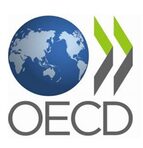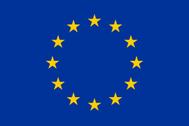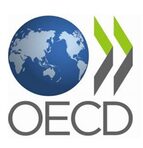|
Switzerland and Ethiopia signed a tax treaty on July 29.
The tax treaty allows the Swiss network of double taxation agreements to be expanded into Eastern Africa for the first time. It guarantees legal certainty and a contractual framework, which will have a beneficial effect on the further development of bilateral economic relations. The tax treaty takes account of the developments associated with the OECD's base erosion and profit shifting project, which aims to combat the erosion of the tax base and profit shifting. In this respect, it contains an anti-abuse clause. The tax treaty also contains an administrative assistance clause in line with the international standard for the exchange of information upon request. On July 26, 2021, the OECD released the Stage 2 mutual agreement procedure (MAP) peer review monitoring reports for a further eight jurisdictions.
Reports have been released for Argentina, Chile, Colombia, Croatia, India, Latvia, Lithuania, and South Africa. These reports evaluate the progress made by these eight jurisdictions in implementing any recommendations resulting from their Stage 1 peer review. The results from the peer review and peer monitoring process demonstrate positive changes across all eight jurisdictions, although not all show the same level of progress. See Reports On July 23, 2021, the tax authority of Singapore announced that the updated tax treaty between Singapore and Indonesia has entered into force.
The tax treaty was signed on February 4, 2020, and entered into force on July 23, 2021. The tax treaty is aimed at benefitting businesses in both Singapore and Indonesia as well as boost bilateral trade and investment flows between the two countries. See Announcement Philippines and Brunei signed a tax treaty on July 16, 2021.
Philippine Finance Secretary Carlos Dominguez said the tax treaty will strengthen economic cooperation and enhance investment flows and economic activity between the two countries. He assured the Philippines’ commitment to continue and deepen the coordination with the tax authorities of Brunei in ensuring the proper implementation of the tax treaty and the enforcement of relevant tax laws. Dominguez said: “The tax treaty will serve us well as we bounce back from the ravages of the global health crisis. It will further ease trade in goods and services between our two countries. Moreover, it will strengthen our economic cooperation and enhance investment flows and economic activity across our borders. I look forward to heightened cooperation between our two countries as we both exert all our efforts to recover from the pandemic and rebuild the best possible future for our two peoples.” See Announcement According to an update from the Irish tax authority, the DAC6 Schema Version 1.2 will apply for all DAC6 reports from August 1, 2021 onwards.
The DAC6 Schema Version 1.1 is applicable for all exchanges until July 31, 2021. To facilitate the migration to Schema Version 1.2, the Revenue electronic filing system on ROS for DAC6 will be unavailable from 00:01 on August 1, 2021 and will reopen on August 10, 2021. See Announcement The European Commission has welcomed the historic global agreement on digital economy taxation as endorsed by the G20 finance ministers.
European Commissioner for Economy Paolo Gentiloni, who is taking part in the discussions in Venice today, said: “The G20 has today endorsed the unprecedented global agreement on corporate tax reform reached last week and now supported by 132 jurisdictions. A bold step has been taken, one that few would have thought possible just a few months ago.” “This is a victory for tax fairness, for social justice and for the multilateral system. But our work is not done. We have until October to finalize this agreement. I am optimistic that we will be able in that time also to reach a consensus among all European Union Member States on this crucial issue.” See Statement On July 5, 2021, the Australian Government launched a public consultation on a new patent box regime.
On May 11, 2021, the Australian Government announced that it will introduce a patent box for eligible corporate income associated with new patents in the medical and biotechnology sectors. The patent box will apply to companies for income years commencing on or after July 1, 2022. The aim of the Government’s policy is to encourage companies to base their medical and biotechnology research and development (R&D) operations, and commercialize innovation, in Australia and to retain associated patent profits in Australia. The objective of this discussion paper is to inform the Government’s consideration of the detailed design of the patent box announced in the 2021‑22 Budget. Comments must be received by August 16, 2021. See Consultation Document On July 1, 2021, the OECD announced that 130 countries and jurisdictions have joined a new two-pillar plan to reform international taxation rules and ensure that multinational enterprises pay a fair share of tax wherever they operate.
The two-pillar package aims to ensure that large multinational enterprises (MNEs) pay tax where they operate and earn profits, while adding much-needed certainty and stability to the international tax system. Pillar One will ensure a fairer distribution of profits and taxing rights among countries with respect to the largest MNEs, including digital companies. It would re-allocate some taxing rights over MNEs from their home countries to the markets where they have business activities and earn profits, regardless of whether firms have a physical presence there. Pillar Two seeks to put a floor on competition over corporate income tax, through the introduction of a global minimum corporate tax rate that countries can use to protect their tax bases. Participants in the negotiation have set an ambitious timeline for conclusion of the negotiations. This includes an October 2021 deadline for finalizing the remaining technical work on the two-pillar approach, as well as a plan for effective implementation in 2023. See Announcement The provisions in the Corporate Recovery and Tax Incentives for Enterprises (CREATE) Act eliminating the preferential tax rates given to regional operating headquarters (ROHQs) of multinational corporations (MNCs) has cleared the way to the Philippines’ removal by January 2022 from an international list of “harmful” tax regimes, the Philippine Department of Finance (DOF) has said.
Through the initiative of the DOF led by Undersecretary Antonette Tionko, the OECD’s Forum on Harmful Tax Practices (FHTP) granted the Philippines’ appeal to assess its ROHQ regime as “potentially harmful but not actually harmful” until December 3, 2021, and then have the country’s ROHQ regime status declared as “abolished” by January 1, 2022. The FHTP considers as “harmful tax features” the special tax rates given to ROHQs because these gave undue tax advantages to foreign taxpayers and discriminates against local taxpayers; and recipients were not required to show “adequate substance for the activities carried out.” Tionko said in her report to Finance Secretary Carlos Dominguez III that the FHTP had initially recommended that the Philippines’ ROHQ regime be assessed as “harmful” until December 31 this year, but the DOF’s Revenue Operations Group successfully appealed that this be changed to “potentially harmful but not actually harmful” owing to the enactment of an existing law—CREATE—which removes the tax perks given to ROHQs beginning January 1, 2022. From the previous preferential rate of 10 percent, ROHQs will be taxed the general corporate income tax rate as those imposed on other companies by January 1, 2022 under CREATE. See Release |
Archives
March 2024
|
COMTAX ABC/o Ekonomiforetaget Baehring Dahl AB
Berga Alle 3 25452 Helsingborg Sweden |
CONTACTTel.: +46 46 590 07 70
E-mail: support(@)comtaxit.com |
INFORMATION |
© COPYRIGHT 1985 - 2024 COMTAX AB. ALL RIGHTS RESERVED.









